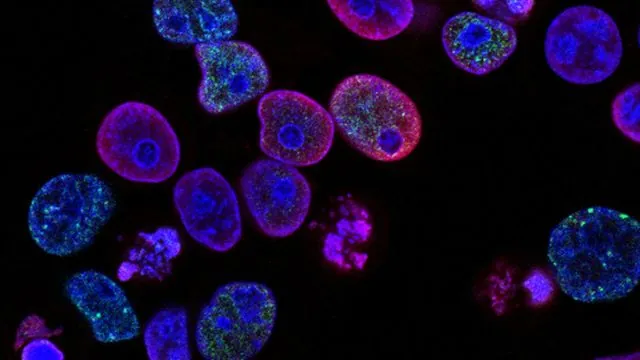
Breaking Discovery: New Microfluidic Device Unlocks Secrets of Tumor Shape and Aggressiveness!
2024-11-18
Author: Jacques
Groundbreaking Research by University of Toronto
In a groundbreaking study, researchers from the University of Toronto's Faculty of Applied Science & Engineering have developed an innovative microfluidic platform that provides unprecedented control over tumor shapes. This pioneering work could transform cancer research by revealing how the morphology of tumors correlates with cancer cell behavior and aggressiveness.
Redefining Cancer Care
Led by Professor Edmond Young, this initiative aims to redefine current cancer care, offering potential pathways for personalized and targeted treatments. Co-lead author Sina Kheiri notes that although existing platforms allow for the cultivation of three-dimensional tumor aggregates, researchers have faced significant challenges in manipulating these structures effectively.
Introducing the ReSCUE Platform
Previously, tumor models—often stuck on devices and seen through optical microscopy—lacked mobility and detailed characterization. Enter the ReSCUE (Recoverable-Spheroid-on-a-Chip with Unrestricted External Shape) platform, which enables researchers not only to grow tumors in a variety of shapes but also to recover and analyze them after experimentation.
Significance of Tumor Shape
This unique capability is vital because, unlike the traditionally used spherical tumors, real-life tumors exhibit a diverse array of shapes, particularly in invasive cancers. In fact, a recent study tracking 85 breast cancer patients revealed that only 20% of tumors were spherical. This disparity suggests that focusing exclusively on spherical models may lead researchers to overlook critical aspects of tumor behavior.
Collaboration and Innovative Materials
Kheiri's integral research was conducted alongside Professor Eugenia Kumacheva and clinical scientist Dr. David Cescon from the Princess Margaret Cancer Centre, who provided essential cancer cell samples. The team utilized EKGel, a biomimetic hydrogel developed in Kumacheva’s lab, as a nurturing scaffold for patient-derived cancer cells. This allows cells to grow and behave more like they would in human tissue, enabling a more authentic study of tumor dynamics.
Discovery of Shape Influence on Tumor Behavior
The discovery that tumor shapes influence cellular behavior emerged serendipitously during early experiments. By altering the geometrical design of microwells, Kheiri observed that elongated shapes prompted aggressive growth in cellular strands at areas of positive curvature—a stark contrast to cells forming spherical shapes.
Implications for Cancer Treatment
This correlation suggests that tumors with certain shapes may exhibit higher malignant potential, which could accelerate the invasion of cancer cells. Identifying this relationship could have profound implications for treatment strategies, particularly for therapies involving targeted radiation or specific drug delivery systems.
Ongoing Research and Future Directions
As Kheiri advances his work at the Massachusetts Institute of Technology, he continues to collaborate with Young's lab on ReSCUE. The research team has already submitted a U.S. patent application, signaling their commitment to refining this innovative platform.
Towards Enhanced Complexity in Tumor Models
“We aim to enhance the complexity of our models,” Young stated, hinting at the introduction of features like surrounding vasculature. This progression could lead to even more accurate drug testing and a deeper understanding of cancer biology.
The Future of Cancer Research
As researchers delve deeper into the enigmatic world of tumor shapes and their impact on cancer, the potential for groundbreaking advancements in treatment looms large on the horizon. Stay tuned as this captivating research unfolds, revealing new dimensions in the fight against cancer!



 Brasil (PT)
Brasil (PT)
 Canada (EN)
Canada (EN)
 Chile (ES)
Chile (ES)
 Česko (CS)
Česko (CS)
 대한민국 (KO)
대한민국 (KO)
 España (ES)
España (ES)
 France (FR)
France (FR)
 Hong Kong (EN)
Hong Kong (EN)
 Italia (IT)
Italia (IT)
 日本 (JA)
日本 (JA)
 Magyarország (HU)
Magyarország (HU)
 Norge (NO)
Norge (NO)
 Polska (PL)
Polska (PL)
 Schweiz (DE)
Schweiz (DE)
 Singapore (EN)
Singapore (EN)
 Sverige (SV)
Sverige (SV)
 Suomi (FI)
Suomi (FI)
 Türkiye (TR)
Türkiye (TR)
 الإمارات العربية المتحدة (AR)
الإمارات العربية المتحدة (AR)